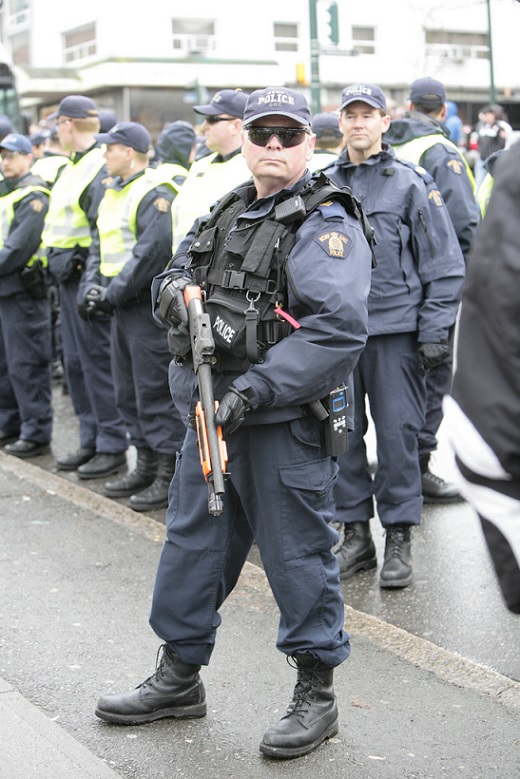The Supreme Court of Canada has spoken: RCMP officers have the right to form a union. My brothers and sisters in the labour movement are overjoyed. But I cannot join in the celebrations.
No right is abstract and universal: all of them are modulated through context. In this case we need to step back and look at the question of power, and its built-in imbalances.
Freedom can be a zero-sum game. More freedom for a corporation means less for ordinary citizens. More freedom for “the state” means less for individuals in the polity. Sometimes it’s obvious that the greater good is served by curtailing individual freedom — that’s what criminal law is all about, after all. But at other times — particularly with respect to the state’s monopoly on violence and its application in practice — we cannot be so certain.
Recently, from south of the border, we’ve observed case after case after case of police impunity: the law simply fails to function when those whose job it is to uphold it go rogue. Too many young, unarmed Black men and boys have been gunned down by white police officers in suspicious circumstances, without charges being laid: there seems no end to the procession of victims. But any whisper of sympathy for them has been met by massive resistance from the folks in blue — led, as we have seen in New York, by their unions.
In the case at hand, RCMP officers have won their battle on the basis of freedom of association, a right obviously held dear by the labour movement, who have seen that right being eroded by the Harper government with various anti-labour pieces of legislation like C-377 and C-525, along with so-called “right-to-work” initiatives in the provinces. But ranged against that right are others: the right to life, liberty, and security of the person.
Consider the fact that the “horribly broken” RCMP has been under scrutiny for years. It remains badly managed and badly structured, with a toxic corporate culture. Its officers can do pretty much as they like, with minor wrist-slaps at the most: burn barns, engage in industrial sabotage to frame people, pepper-spray infants, kill a new immigrant, take a drunk Aboriginal woman home to play with — you name it.
The RCMP have also been implicated in numerous cases where they have behaved, as I have noted before, more like the Prime Minister’s Praetorian Guard than a professional and independent police force.
And — lest we forget — the RCMP also has a long, inglorious history of anti-labour activities. Solidarity forever?
Take a wider view, then, of this great victory for collective bargaining rights. The Mounties, as agents of the state and enforcers of state power, aren’t like ordinary workers in a plant or an office, who must band together to have a fighting chance of decent treatment by their employers. The latter start from a position of weakness [see: capitalism], but RCMP officers in our society are already virtually untouchable, and the force as a whole is literally out of control. A union will simply serve to strengthen its already-winning hand as part of the power structure.
Unions are, or should be, a workers’ bulwark against the unequal power relations that define our economic system and our society. Unions came into being to punch up, not down. While it might be argued in response that an RCMP officers’ union is in that same unequal position with its own management, in the larger scheme of things, as we have seen far too often, there is little daylight between management and labour when it comes to the RCMP’s questionable treatment of ordinary citizens. There will be almost none now.
Freedom to organize that merely strengthens the oppressor is no freedom at all for the majority of working Canadians. Isn’t it with the latter that progressives, including the labour movement, should take our stand?



